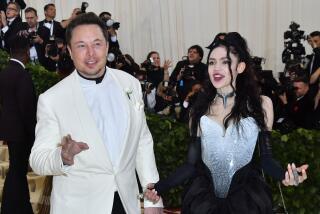JUNG’S WARNING TO WEIMAR
- Share via
I was appalled at the innuendo and falsity in Russell Jacoby’s characterization of Jung and Jungians in the course of his review of Jerome Bernstein’s “Power and Politics” (Book Review, July 2). First, Jung read the Zurich newspaper every day, and had frequent and lengthy commentaries about the state of political realities throughout his writings. Second, the old canard linking Jung to Nazi sympathies was cleverly put forth in Jacoby’s review, but just as mistaken and offensive.
Jung did not believe that the “Jewish psyche” was inferior. He did not focus his psychology on “the creative Aryan unconscious” and in fact fought the Nazification of the psychological society of which he was president until he resigned. His numerous warnings about the collective psychosis that seized the German people were made before many people saw clearly into the nature of the madness that it was. His whole psychology could be said to be a way of becoming more individual, and thus less susceptible to totalitarianism and mass hysteria. Jung did not glimpse an ecstatic Wotan (a Germanic god) to be celebrated when he looked at Nazism. He saw civilization as a thin veneer over more primitive and destructive gods in the German psyche that were not brought to consciousness and integrated in psychologically responsible ways.
If Jung were as Jacoby portrays him to have been, why were so many of his most creative followers, including the late senior analyst in Los Angeles, James Kirsch, Jewish? The problem with Jacoby’s attack on Jung is that the false connection, the exasperating lie, is left in the residue of memory after the charges have been answered.
DAVID DeBUS
LA JOLLA
More to Read
Sign up for our Book Club newsletter
Get the latest news, events and more from the Los Angeles Times Book Club, and help us get L.A. reading and talking.
You may occasionally receive promotional content from the Los Angeles Times.







